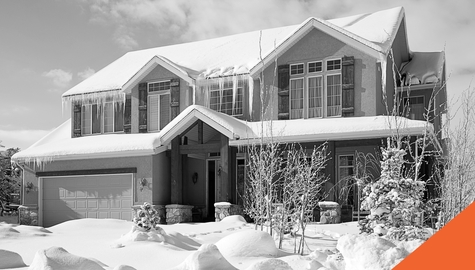Everything You Need to Know About Vacant Home Insurance
Friday, 22 March 2024
When it comes to homeownership, one often overlooked aspect is ensuring your property is adequately protected, especially when it stands vacant. Whether you're between tenants, planning an extended trip, or waiting to sell a property, vacant home insurance is a crucial consideration. In this blog, we will explore the world of vacant home insurance, covering everything from its definition to why it's essential and what it typically covers.
What is a “Vacant Home”?
Before diving into the specifics of vacant home insurance, let's establish what constitutes a "vacant home." In Canada, a property is generally considered vacant when it's empty and not being lived in for an extended period. This can vary by insurance provider, but a home or condo is typically considered vacant when it's uninhabited for 30 consecutive days or more. When vacant, properties face different risks compared to an occupied home. This includes vandalism, break-ins, undetected maintenance issues, and other potential perils.
How Long Can a House Be Vacant for Insurance?
One common question among homeowners is, "How long can a house be vacant for insurance purposes?" As mentioned, most insurance companies consider a home vacant after it has been unoccupied for 30 consecutive days. However, policies can vary, so it's essential to check with your specific insurer for their guidelines.
Standard homeowner's insurance may no longer provide coverage when a property is vacant for an extended period. This is where vacant home insurance steps in to fill the gap, offering protection tailored to the unique risks associated with uninhabited properties.
Is Vacant Home Insurance Necessary?
Now, let's address the question of whether vacant house insurance is necessary. The answer depends on various factors, including your provider, your specific situation, and risk tolerance. While it's an additional cost, vacant home insurance can provide invaluable peace of mind. Here are some scenarios where you might need this coverage:
- Post-Move, Pre-Sale: When you've moved out of a home but have not yet sold it.
- Rental Properties: If you are in between tenants and the property is uninhabited for more than 30 days.
- Inheritance: You’ve inherited the home of a family member who recently passed away.
On the other hand, you may find yourself in a situation where you will be away from your residence for an extended period of time but have plans to return. For example, you could be taking an extended trip for a few months - leaving your home unoccupied while you travel. Or maybe your house is undergoing major renovations, and you need to move out while the work is completed. Depending on your insurance company, you might not need vacant home insurance; however, this is only the case for some.
Factors such as the length of time you are away and the reason for your absence will be considered when determining the coverage you need. In some cases, insurance for unoccupied homes or a vacancy permit might be your best option instead of purchasing vacant home insurance. Regardless of the reason, informing your insurance provider of your situation is imperative, as you will want to ensure you have the proper protection while your property is empty.
What Does Vacant Home Insurance Cover?
Homeowners insurance for vacant homes provides coverage specifically designed for a property you own but do not plan to live in yourself. While insurance on vacant homes can vary between insurers, common protections include:
- Property Damage: Coverage for damage caused by perils such as fire, vandalism, and natural disasters.
- Liability: Protection in case someone is injured on your property and you are held responsible.
- Theft: Coverage for theft and burglary, which can be more common in vacant homes.
- Squatters: If someone moves into your empty house without you knowing and causes damage.
It's important to review the specifics of a vacant home insurance policy to ensure you have the coverage youa need based on your property's unique circumstances.
How to Prepare Your Home for Vacancy
Before vacating your home, some preventive measures can mitigate risks and potential issues. Here are some tips to prepare your home for vacancy:
- Prevent water damage by turning off the main water supply and draining pipes.
- Ensure all doors and windows are locked and secure. Use window coverings to prevent anyone from being able to see into the home.
- Arrange for mail to be held or forwarded to prevent a buildup that signals vacancy.
- If applicable, protect against frozen pipes and winter weather damage.
- If possible, check on your property regularly and perform maintenance tasks or have a trusted friend keep an eye on it.
By following these steps, you can reduce the likelihood of problems during the period of vacancy and potentially lower insurance risks.
Cottage Insurance
While vacant home insurance is crucial for an empty house, cottage insurance provides specialized coverage for seasonal properties. This type of insurance accounts for periods where you will not be using the property and protects against risks specific to vacation homes, such as seasonal weather damage and limited occupancy. For more information about this coverage, contact a BIG broker.
Get a Home Insurance Quote Today with BIG
In conclusion, vacant home insurance is vital for homeowners facing periods of property vacancy. Understanding what constitutes a vacant home, the need for specialized coverage, and how to prepare your property are key steps in protecting your investment.
With BIG's comprehensive insurance options and experienced brokers, you can find peace of mind knowing your home is safeguarded even when empty. Get started today by requesting a quote for home insurance with BIG.



